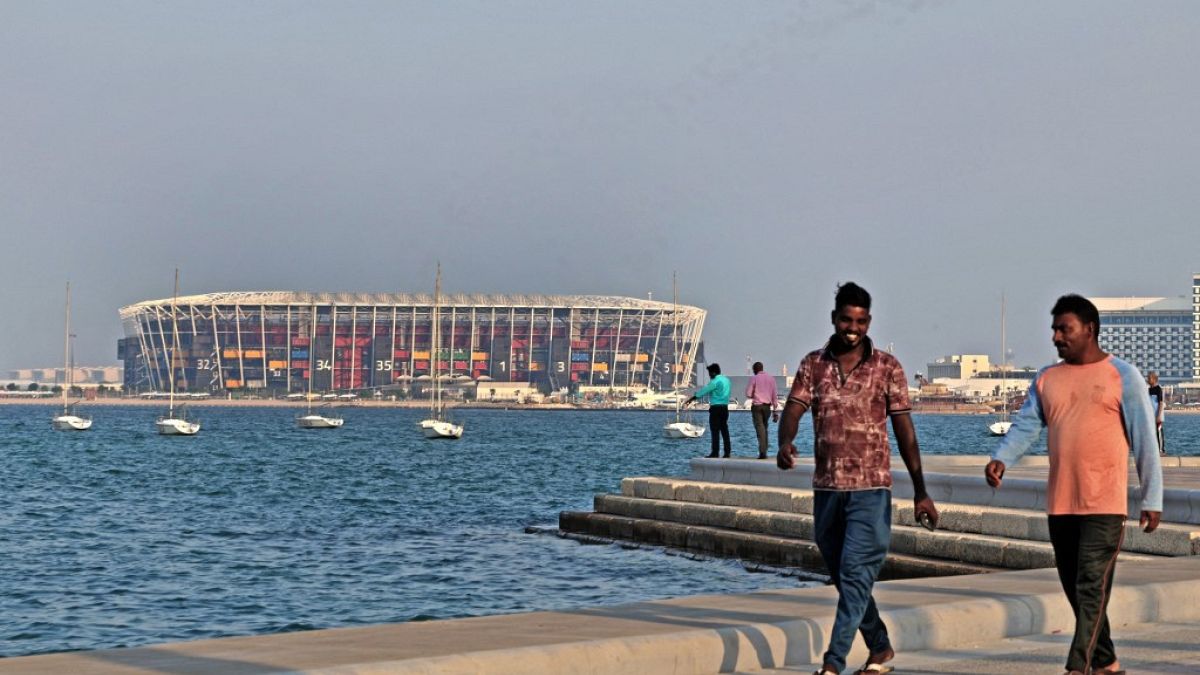The Emir of Qatar said on Tuesday that criticism raised about his country's treatment of migrant workers and the LGBT community ahead of the World Cup was "slander".
Qatar's ruler said on Tuesday that criticism over his country's hosting of the FIFA World Cup was "slander".
“Since we had the honour of hosting the World Cup, Qatar has been the target of an unprecedented campaign that no other host country has suffered,” said Emir Sheikh Tamim bin Hamad Al-Thani, leader of the tiny Gulf state.
FIFA controversially awarded the 2022 World Cup to Qatar in 2010, with Qatar's rulers spending tens of billions of euros on the event which will take place from 20 November to 18 December.
The energy-rich, Middle Eastern country has been repeatedly criticised over the treatment of migrant workers, women and the LGBT+ community in the run-up to the World Cup, which is costing €6.84 billion.
On Monday, the NGO Human Rights Watch claimed that Qatar's security forces have arbitrarily arrested lesbian, gay, bisexual and transgender people, subjecting them to violence and ill-treatment in detention.
On Tuesday, veteran UK-based activist Peter Tatchell was questioned by police after staging a protest over the country's treatment of the LGBT community in front of Qatar’s National Museum.
Qatar denied claims he was arrested and said the allegations were “completely false.”
Deaths, alleged exploitation and abuses of migrants -- mostly from South East Asia and East Africa -- working in construction are also under the spotlight of human rights organisations and the media.
Qatar introduced labour protections and ended the kafala system, which prevents immigrant labourers from changing jobs, in response to these criticisms.
But some observers have questioned the effectiveness of these changes, with the minimum wage amounting to just over €1 an hour and doubts whether reforms to the kafala system happened in reality.
"Initially, we dealt with this subject in good faith, and we even considered that certain criticisms were positive and useful, helping us to develop aspects which should be developed", said Emir Sheikh Tamim bin Hamad Al-Thani in Doha on Tuesday.
"But it soon became clear to us that the campaign persists, expands, there is slander and double standards, reaching a level of relentlessness that has left many wondering, sadly, on the real reasons and motivations of this campaign," he added.
FIFA President Gianni Infantino said recently that the Qatar World Cup, the first to be held in an Arab country, would be the "best ever".
